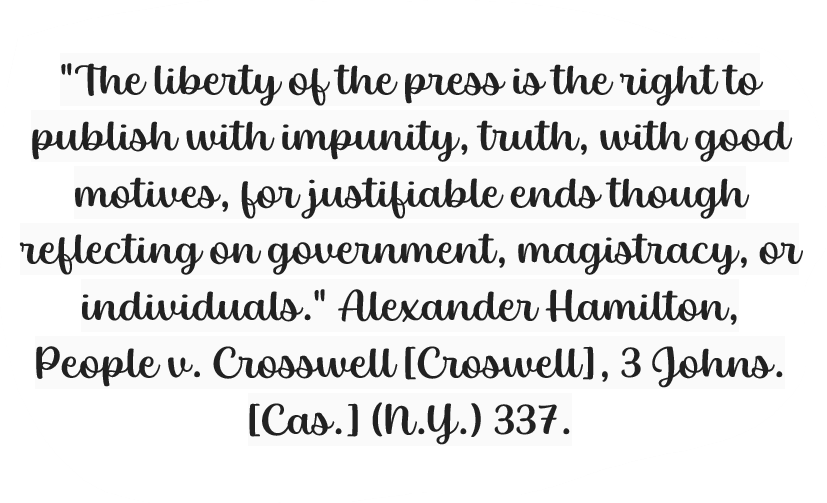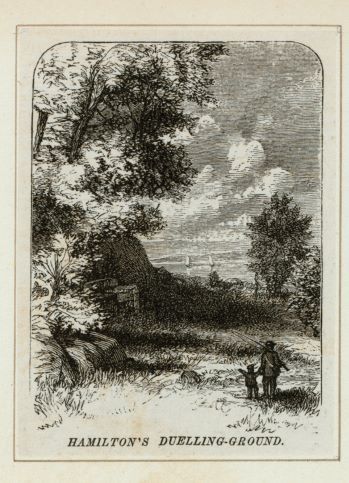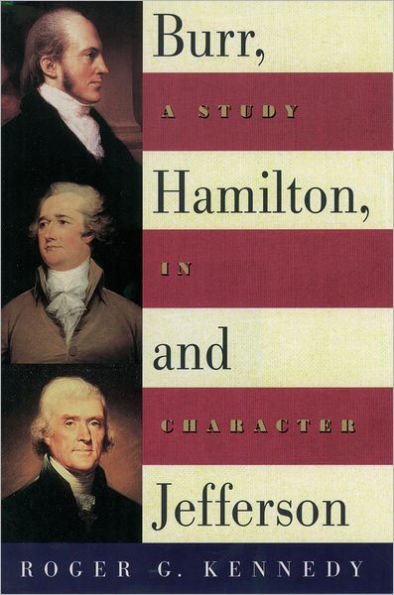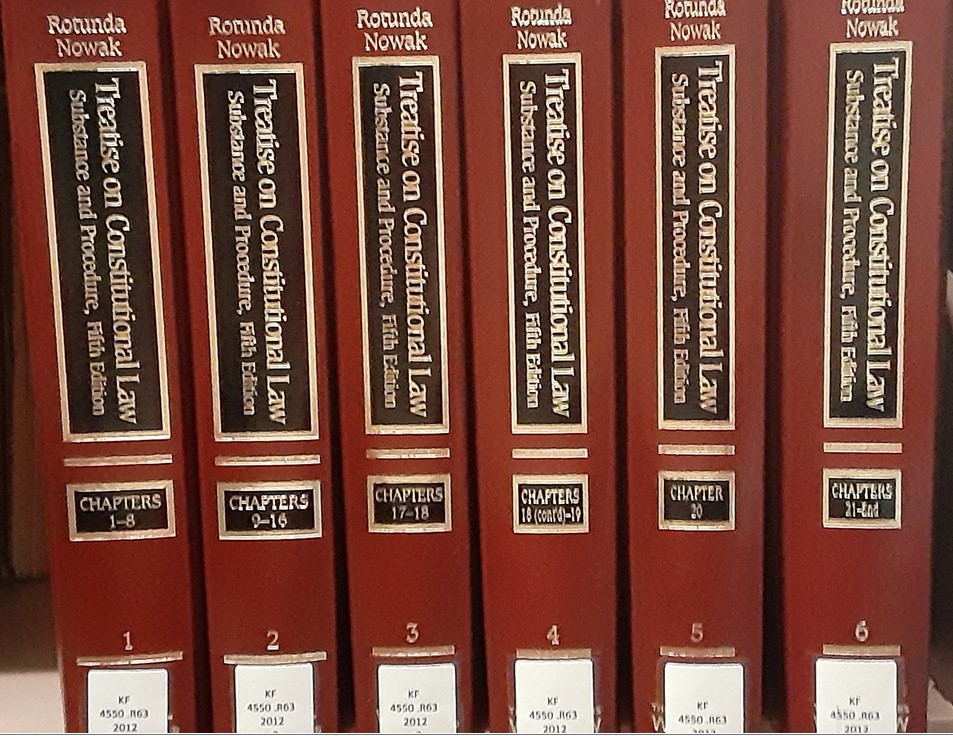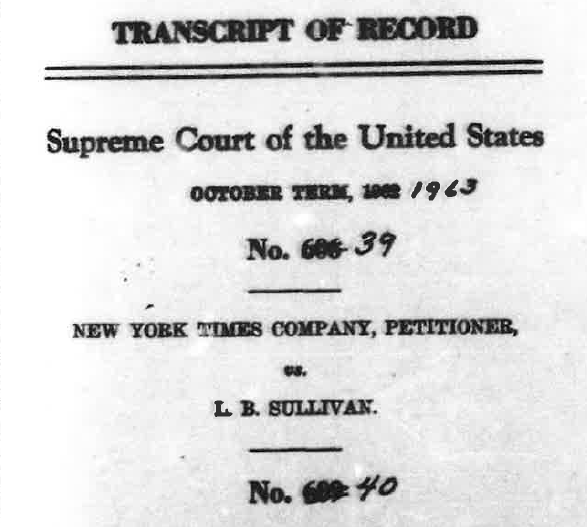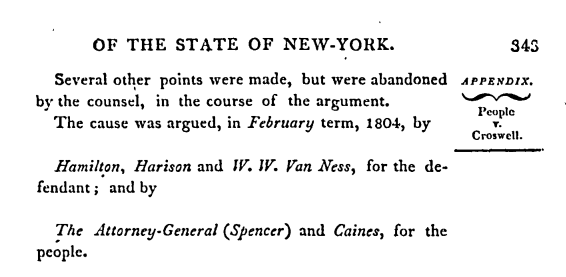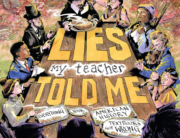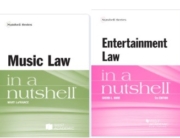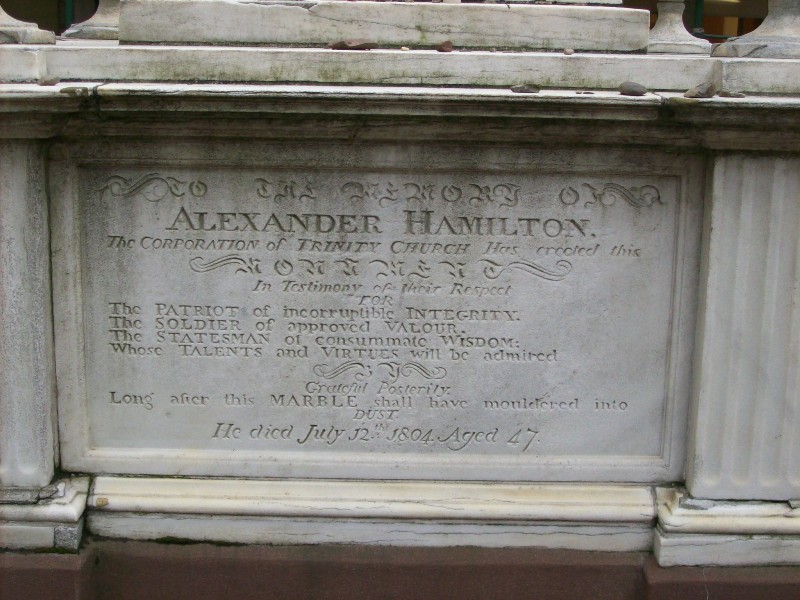
And with Lin-Manuel’s Musical, many now know of the duel that led to Hamilton’s early death.
But what is sometimes overlooked (or de-emphasized!) is his career as a lawyer…..
An examination of just two of his cases show that Hamilton’s legal career was significant….
In Rutgers v. Waddington (1784) , Hamilton’s legal claims were the first to establish the principle that State legislation in conflict with the provision of a United States Treaty was void. It also set State precedent for the doctrine of judicial review that would be established in the Supreme Court of the United States in 1803 (Madison v. Marbury, 5 U.S.137)
In People v. Croswell (3 Johns. Cas. 337, NY 1804), Hamilton unsuccessfully argued the legality of using truth as a defense against libel. President Jefferson, annoyed by bad press, encouraged his colleagues to enforce the Sedition Act against a small newspaper in upstate N.Y. Editor Croswell published stories claiming that Jefferson paid publisher Callender to run negative stories against his opponents.
While Hamilton’s argument lost, Croswell is now regarded as the beginning of the now accepted principle that truth is a defense in libel cases. In Brandywine -Main-Line Radio v. FCC (473 F2nd 16, D.C. Cir. 1972), the court extensively quotes Croswell, emphasizing that Hamilton made the “greatest single contribution” toward preventing the use of prosecution of the press as a political weapon (FCC, 473 F2d 53 n. 167). More recently, a New York court cited Croswell and Hamilton’s role, calling him a “tireless defender of freedom on the press in New York” (People v. Santiago; 185 Misc. 2d 138).

